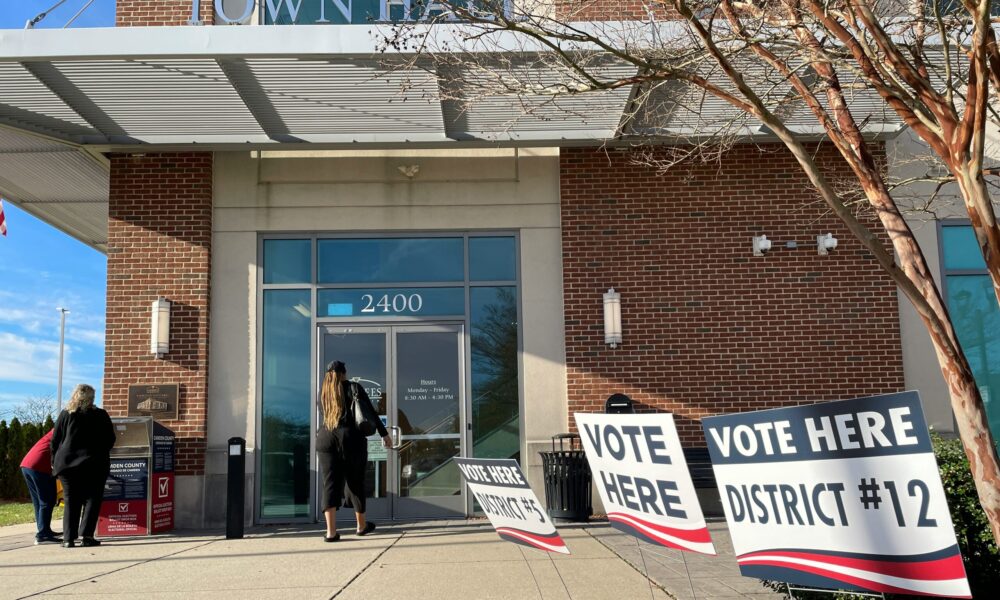Last month, a federal judge blocked implementation of a new executive order from President Trump. Under the misleading title “Preserving and Protecting the Integrity of American Elections,” this executive order (EO) was issued on March 25, 2025. It ordered federal agencies to put new restrictions on voting rights and directed the U.S. Election Assistance Commission (EAC) to change the national voter registration forms to comply with these new requirements.
According to the EO, individuals would have to provide specific documents to vote, like a US passport or identification compliant with the REAL ID Act, and the EAC was directed to enforce this requirement. However, Judge Colleen Kollar-Kotelly of the US District Court of the District of Columbia noted in her ruling, the EAC is an independent bipartisan agency that receives directives by law through Congress and the states, not the President, and under Article 1 of the US Constitution, states have the responsibility of overseeing federal elections.
The EO, if implemented, would constitute a sweeping change to voter registration and voter access. It attempts to restrict mail-in and absentee voting, specifically on ballots received after election day. If states accept mail-in ballots after election day, the EO demands that the federal government withhold election funding from the states. In addition, the EO also claims to end online voter registration, require states to remove noncitizens from voter rolls, call for states and federal agencies to share data to prosecute election crimes, and grant the head of Elon Musk’s so-called Department of Government Efficiency access to check state rolls for compliance. All of this strains the legal and constitutional limits of presidential power.
What’s more, the administration claims all these dubious powers are necessary to solve problems federal policy already addresses. The national voter registration form already asks for registrants to provide a driver’s license number, state ID number, or Social Security number and to swear under penalty of perjury that they are a US citizen. If this EO were to be implemented, millions of eligible voters would be disenfranchised if they are unable to access or obtain the documents specified under this EO. It would discriminate against people in less affluent communities, communities of color, and voters with disabilities, all amongst those that face higher difficulties in accessing these documents.
The lawsuits
On March 31, 2025, a lawsuit filed by the League of United Latin American Citizens (LULAC), the League of Women Voters Education Fund, and others challenged provisions that disenfranchises voters. The lawsuit claims that President Trump oversteps the power given by the Constitution by imposing a proof of citizenship documentation. The lawsuit also claims the EO violates the Administrative Procedure Act, and that President Trump exceeds his presidential authority, both by withholding elections funds from states that do not comply with parts of the EO and by targeting mail ballot receipt deadlines by having the Justice Department act against states that accept ballots after Election Day.
While the Trump Administration fought the lawsuit, the EAC sent a letter to state officials on April 11 is “seeking consultation” about the proof of citizenship requirement. The EAC takes directions from Congress, and from laws passed by Congress that change election law. When EAC sent the letter, they demonstrated to the courts that EAC understood this as mandate from the President.
What’s next?
The court blocked these requirements for proof of citizenship on federal registration forms and at public assistance agencies on April 24, 2025. The other provisions—on mail-in ballot received after Election Day and withholding of federal funding if out of compliance with the EO—need to be challenged by the states. Nineteen states have already filed a lawsuit on the mail-in voting provision.
We’ll be watching this case closely as it moves through the courts. For all his bluster and election-denying theories, President Trump cannot unilaterally change the election process.
UCS has made recommendations to actually make elections fairer and freer
The Center for Science and Democracy published a 2024 policy recommendation report that outlines real, meaningful improvements for election data transparency, which can build trust in the system while helping more people exercise their rights. These recommendations include:
- Publish inactive/removed voter registration records at least 30 days prior to registration deadlines to allow voters to verify and rectify their registration status.
- Use multiple communication methods, including mail, email, phone calls and text messages, to improve chances that voters are informed about removal or potential removal from voter rolls.
- Track and publicize additions, deletions and modifications to voter rolls to enhance accuracy of voter files and provide clear records of wrongful removals or changes.
To learn more about these recommendations, check out my colleague Liza Gordon-Rogers’ blog post.
What can you do?
While the courts have put Trump’s EO on hold, the threat isn’t over: the EO’s directives are drawn from H.R. 22, a bill which passed the House of Representatives on April 10, 2025. H.R. 22 has been sent to the U.S. Senate for consideration (though the Senate also has a version of this bill, numbered S. 128). Now is the time to mobilize and act. You can contact your Senator and ask them to vote against H.R. 22 and S. 128, to protect our freedom to vote. We need to reject anti-voting power grabs, whether from the Presidency or Congress.

